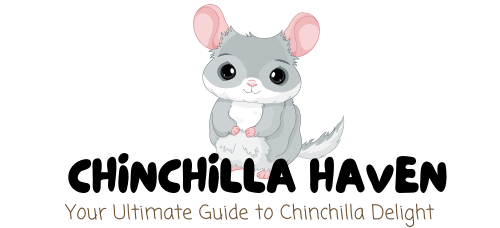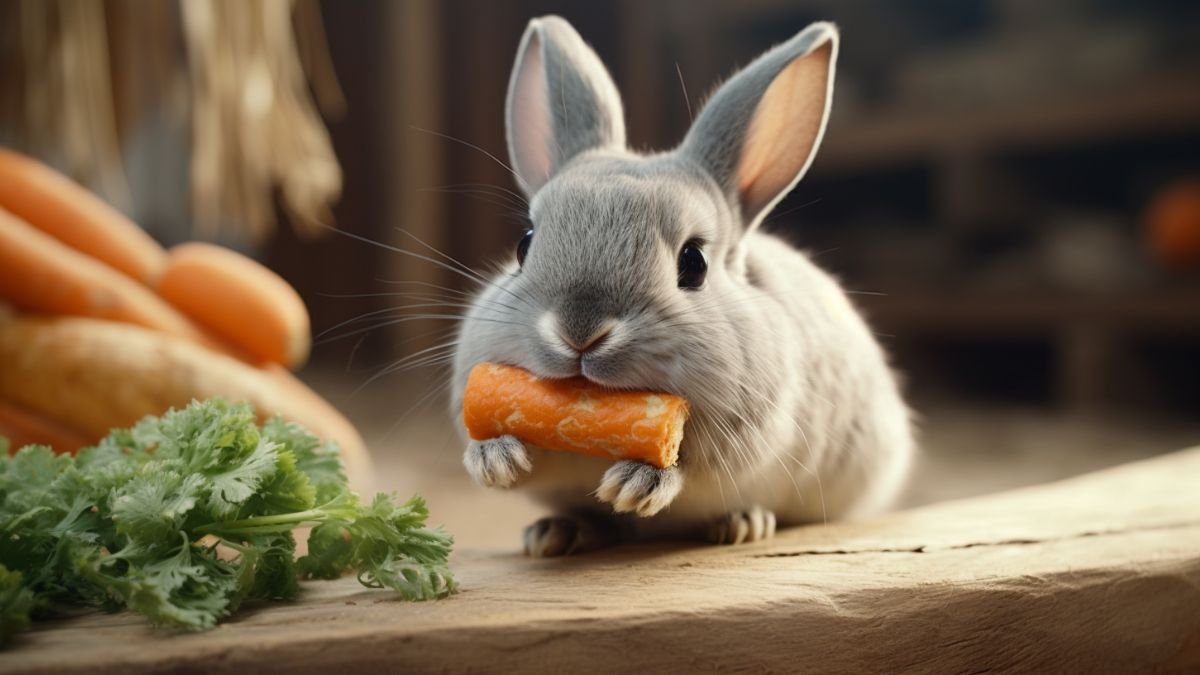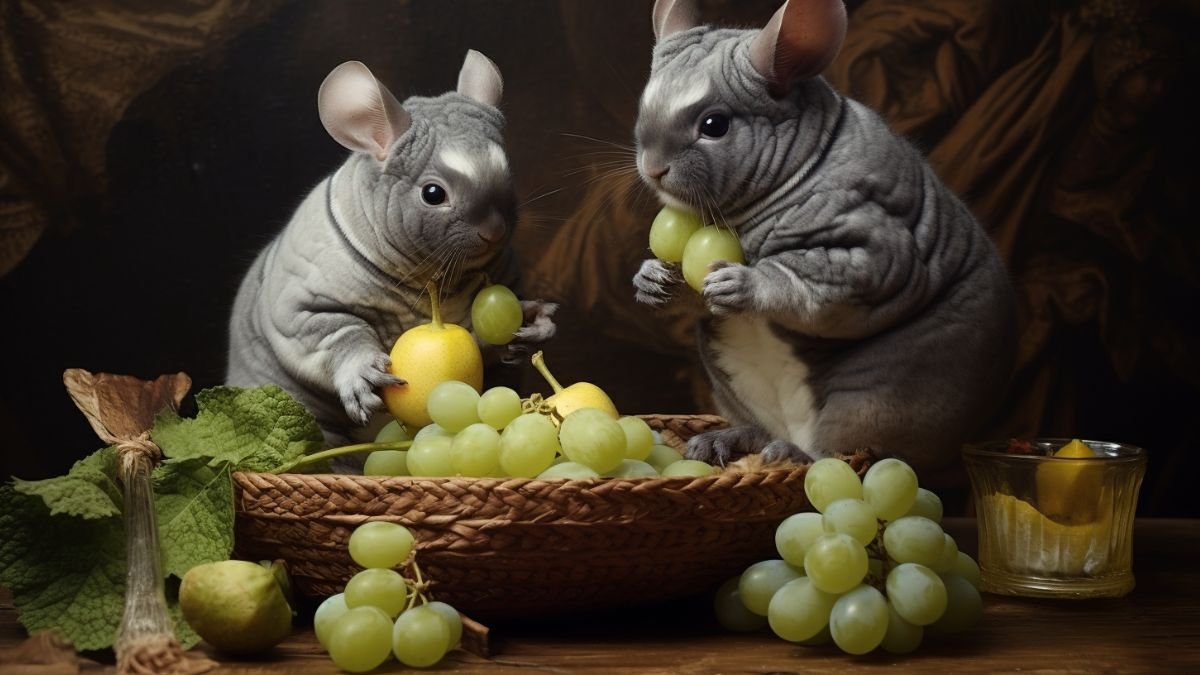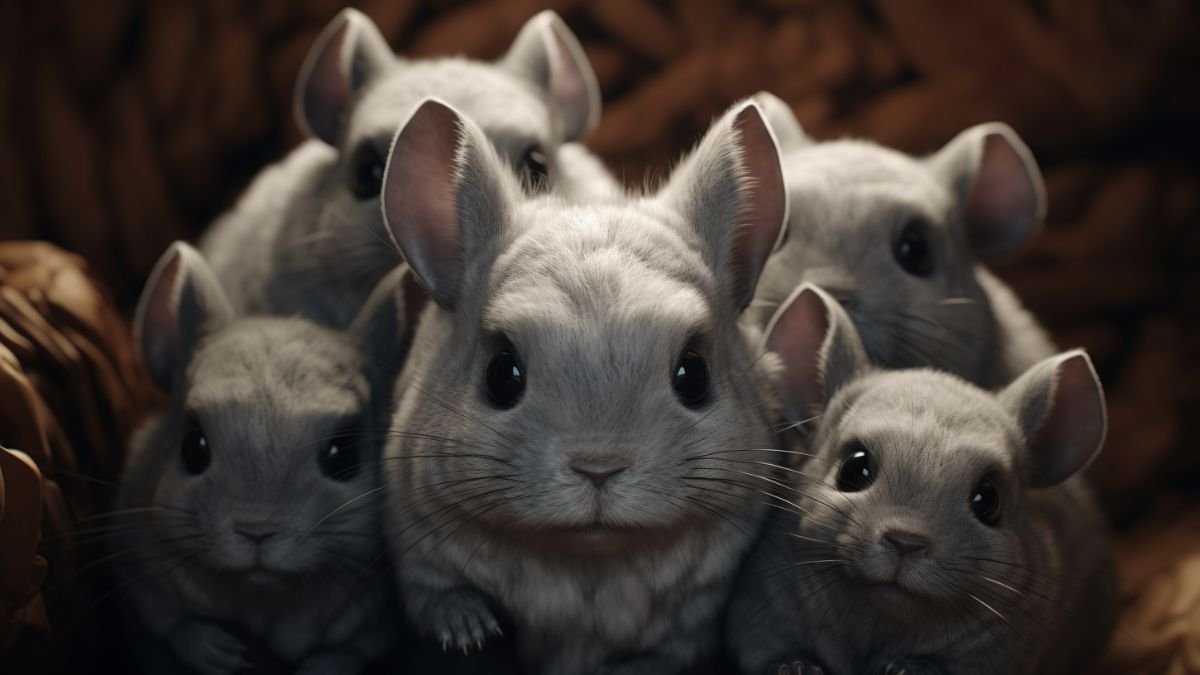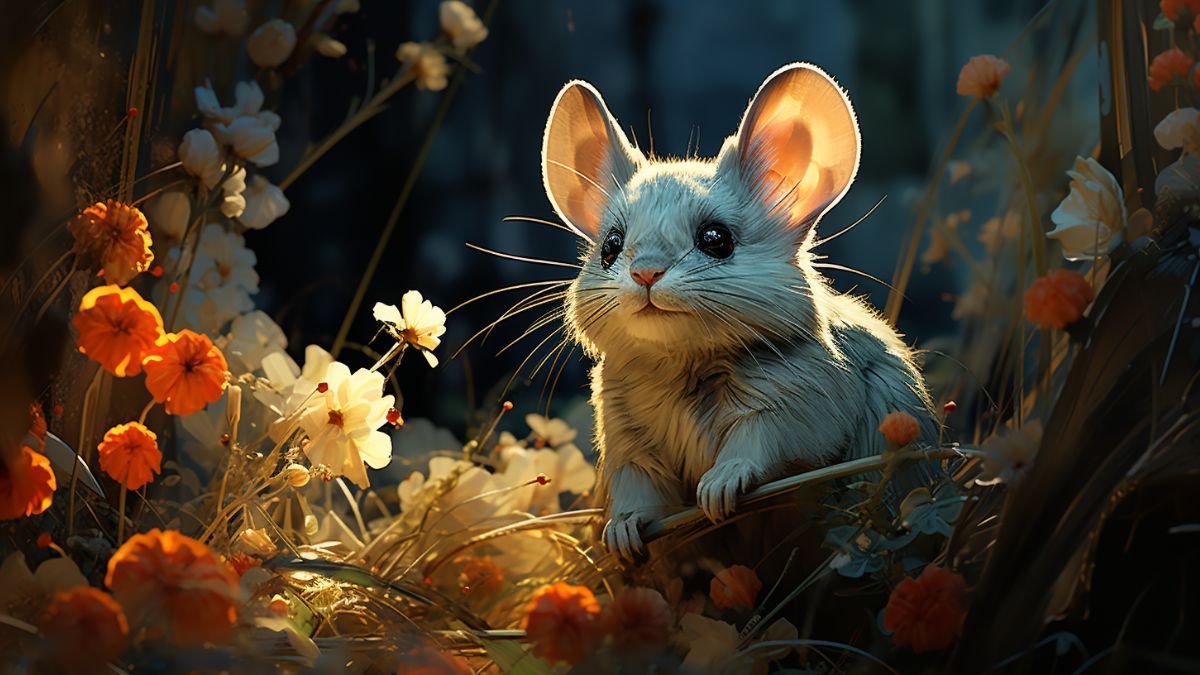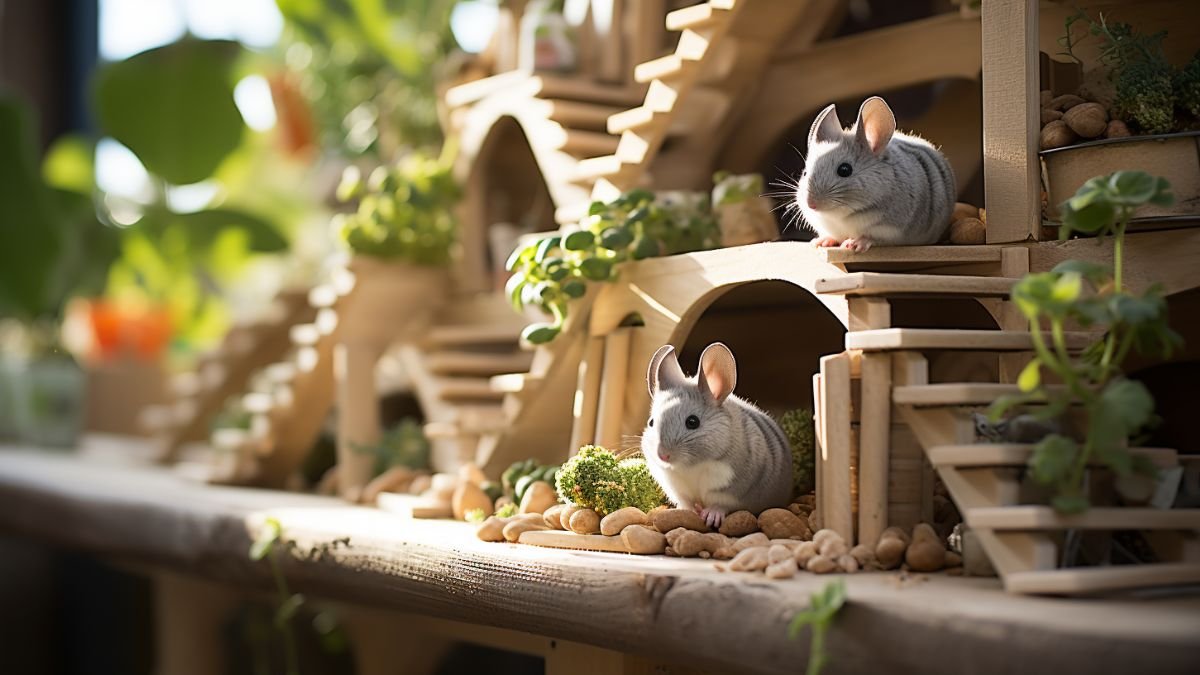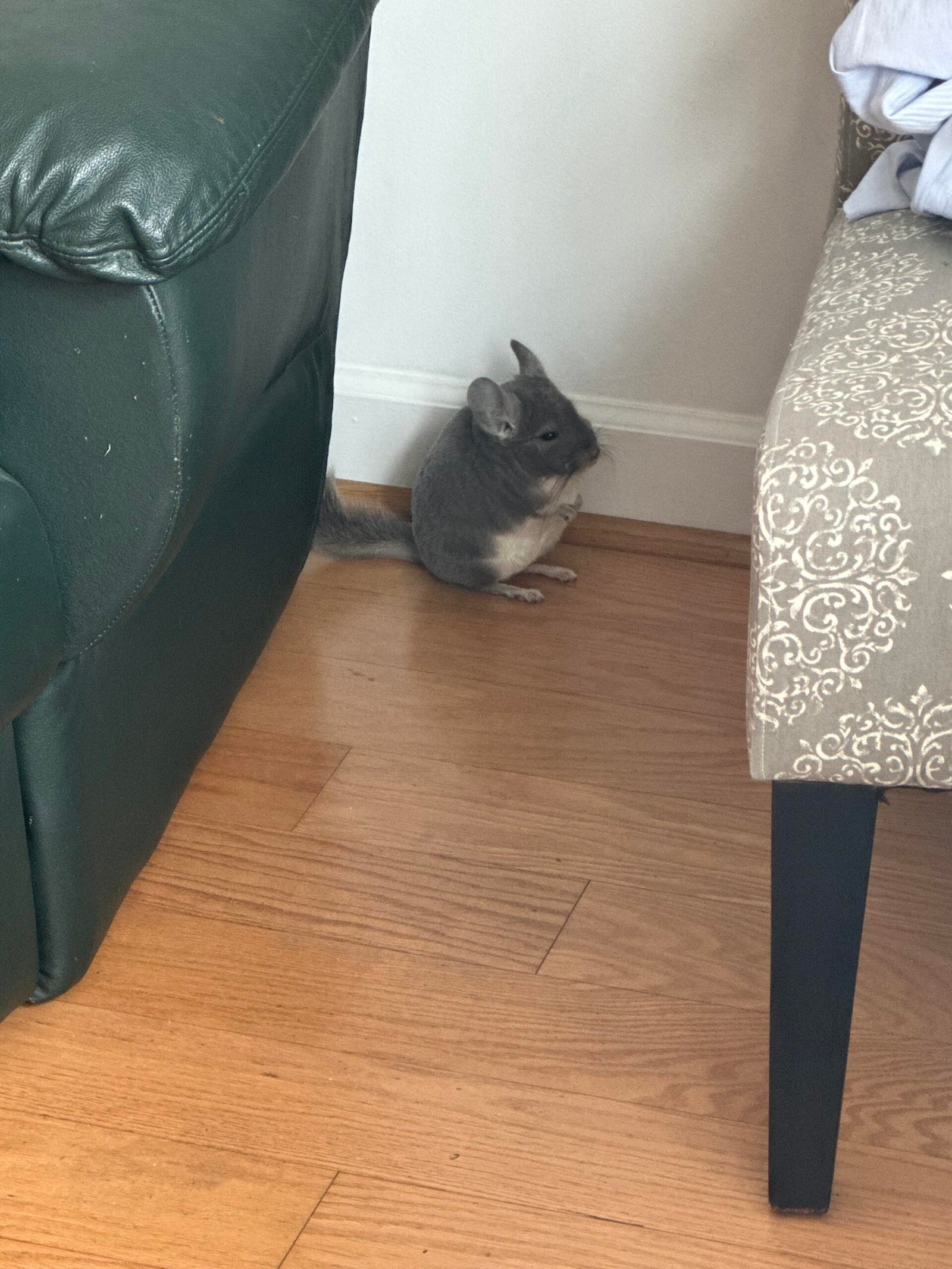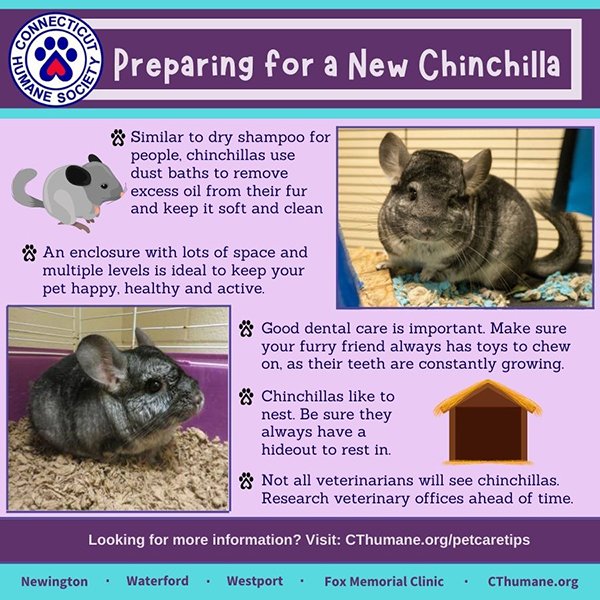
You love your chinchilla and want to keep it happy and healthy. But did you know that dental problems are one of the most common issues these furry pets face?
If you miss the early signs, your chinchilla could suffer from pain and serious health problems. Knowing how to spot dental issues early can save your pet discomfort and costly vet visits. You’ll learn simple, clear ways to recognize the warning signs in time—so your chinchilla stays comfortable and cheerful.
Keep reading to protect your furry friend before small problems turn into big ones.
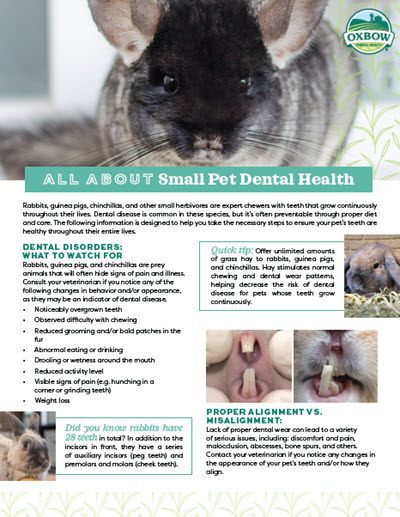
Credit: oxbowanimalhealth.com
Common Dental Problems
Dental problems in chinchillas are common and can cause serious health issues. These rodents have teeth that grow continuously. If their teeth do not wear down properly, problems occur. Early detection helps prevent pain and complications. Knowing common dental problems helps owners act quickly.
Malformed Teeth
Chinchillas can have uneven or misaligned teeth. This condition stops proper chewing. Food may get stuck, causing discomfort. Malformed teeth can lead to cuts inside the mouth. Watch for changes in eating habits or drooling.
Overgrown Teeth
Teeth that grow too long cause pain and difficulty eating. Overgrown teeth may poke the cheeks or tongue. This can cause wounds or infections. Signs include weight loss and less appetite. Regular check-ups help prevent overgrowth.
Tooth Root Abscess
An abscess forms when bacteria infect the tooth root. It causes swelling and pain in the jaw. The chinchilla may stop eating and hide often. This condition needs quick veterinary treatment. Early signs include a lump or bad smell.
Malocclusion
Malocclusion means the teeth do not meet correctly. This makes chewing hard and uneven. It can cause tooth wear problems and mouth sores. Look for drooling, drooping jaw, or bad breath. Treatment often involves trimming the teeth.

Credit: www.tractorsupply.com
Signs Of Tooth Overgrowth
Tooth overgrowth is a common dental issue in chinchillas. Their teeth grow continuously throughout life. If the teeth grow too long, it causes pain and eating problems. Early signs help catch the problem before it worsens. Watch your chinchilla closely for changes in behavior and appearance.
Changes In Eating Habits
Chinchillas with overgrown teeth often eat less. They may drop food while eating. Chewing might take longer than usual. Notice if your pet avoids hard pellets or hay. These are signs of discomfort during chewing.
Excessive Drooling
Too much saliva can mean tooth pain. Overgrown teeth can injure the mouth, causing drooling. Wet fur around the mouth also signals trouble. Check your chinchilla’s chin and chest for dampness.
Weight Loss And Lethargy
Difficulty eating leads to weight loss. Your chinchilla may seem less active. Lack of energy can indicate pain or illness. Monitor their weight regularly for sudden drops.
Visible Tooth Abnormalities
Look at your chinchilla’s teeth if possible. Uneven length or sharp points suggest overgrowth. Teeth may press into the cheeks or tongue. This causes sores and swelling inside the mouth.
Changes In Behavior
Pain from overgrown teeth affects mood. Your chinchilla may hide more often. It might become irritable or less social. Early detection improves treatment success.
Behavioral Changes To Watch
Spotting dental problems in chinchillas early can save them from pain and serious health issues. Behavioral changes are often the first signs of dental trouble. Watching your chinchilla’s habits closely helps catch these problems before they get worse.
Changes In Eating Habits
A chinchilla with dental pain may eat less or stop eating. They might avoid hard foods like pellets or nuts. Watch for slower chewing or dropping food from their mouth. These signs suggest their teeth could hurt.
Increased Drooling Or Wet Fur
Excessive drooling or wet fur around the mouth can signal dental issues. It happens because the chinchilla finds it hard to close its mouth. This can also lead to skin irritation under the chin.
Less Active Or Hiding More
Chinchillas with dental pain often become less playful and sleep more. They might hide in corners or stay in their house longer. This change shows they feel discomfort or stress.
Grinding Teeth Or Unusual Sounds
Grinding or clicking sounds from the mouth can mean teeth problems. Some chinchillas grind teeth when in pain. Listen closely for any new noises during rest or chewing.
Inspecting The Mouth Safely
Inspecting your chinchilla’s mouth is a key step in spotting dental problems early. Teeth issues can cause pain and health risks if missed. Checking the mouth safely keeps your pet calm and avoids injury. A gentle, careful approach works best.
Prepare A Calm Environment
Choose a quiet room with good light. Keep noise and distractions low. This helps your chinchilla stay relaxed. A calm pet is easier to handle and check.
Wash Your Hands And Use Gloves
Clean hands prevent germs from spreading. Wearing gloves protects both you and your pet. It also keeps the mouth area clean during inspection.
Hold Your Chinchilla Gently
Support the body firmly but softly. Use one hand to hold the chest and the other to steady the head. Avoid squeezing or sudden moves. This reduces stress and risk of bites.
Use A Small Light Source
Shine a small flashlight or use a phone light. This helps you see teeth and gums clearly. Focus on the front and sides of the mouth for any signs of trouble.
Check For Signs Of Dental Problems
Look for uneven teeth, sores, or swelling. Note any bad smells or excessive drooling. These signs suggest a vet visit is needed soon.
Diet And Dental Health
Diet plays a big role in chinchilla dental health. Their teeth grow all the time and need proper wear to stay healthy. Feeding the right food helps prevent dental problems early.
Chinchillas need a diet high in fiber. Fiber keeps their teeth worn down naturally. Hay is the best source of fiber for chinchillas. Fresh, good-quality hay should be available at all times.
Importance Of High-fiber Foods
High-fiber foods help chinchillas chew more. This chewing action wears down teeth evenly. Without enough fiber, teeth can grow too long. Overgrown teeth cause pain and eating problems.
Foods To Avoid For Dental Health
Soft and sugary foods can harm chinchilla teeth. These foods do not help wear teeth down. They can also cause tooth decay and infections. Avoid treats like fruits and nuts often.
Signs Of Dental Issues From Diet
Watch for signs like drooling or loss of appetite. Chinchillas may stop chewing hard food. Uneven teeth or swollen gums can appear. These signs suggest diet-related dental problems.

Credit: www.amazon.com
Importance Of Chew Toys
Chew toys play a key role in chinchilla dental health. These small animals have teeth that grow continuously. Without something to chew, their teeth can grow too long. This leads to pain and eating problems.
Chew toys help wear down teeth naturally. They keep teeth at a healthy length. This prevents sharp edges or tooth misalignment. Healthy teeth make your chinchilla happier and more active.
Choosing Safe Chew Toys
Select chew toys made from natural, non-toxic materials. Wood and pumice stones are good choices. Avoid painted or treated items. These can harm your pet if chewed.
How Chew Toys Prevent Dental Issues
Chewing grinds down the teeth evenly. This stops teeth from becoming too long or crooked. It also reduces the risk of mouth injuries and infections.
Signs Your Chinchilla Needs More Chew Toys
Watch for drooling or difficulty eating. These signs suggest dental pain. If your chinchilla stops chewing toys, check for dental problems. Provide fresh chew toys to encourage healthy habits.
Regular Vet Checkups
Regular vet checkups are key to keeping your chinchilla’s teeth healthy. Chinchillas hide pain well, so vets help spot problems early. Early detection stops serious dental issues and pain.
Vets check your pet’s teeth and gums closely. They use special tools to see hard-to-reach areas. This helps find sharp edges, overgrown teeth, or infections fast.
Regular visits also help track changes in your chinchilla’s dental health. Vets can compare past exams and notice small signs of trouble. Catching problems early means easier and cheaper treatments.
What Happens During A Vet Dental Checkup?
The vet starts by gently examining your chinchilla’s mouth. They look for uneven teeth, sores, or swelling. They may use a small mirror or light to see better. Sometimes, they take X-rays to check teeth roots.
How Often Should You Take Your Chinchilla To The Vet?
Take your chinchilla for dental checkups at least twice a year. Pets with past dental problems need more frequent visits. Regular exams keep teeth in good shape and catch issues early.
Signs The Vet Can Spot Early
Vets notice signs that you might miss. These include tooth misalignment, small infections, and early tooth wear. Spotting these signs early prevents pain and serious health problems.
Preventing Dental Issues
Preventing dental issues in chinchillas is key to their health and happiness. Healthy teeth allow them to eat well and stay active. Problems can cause pain and serious illness if not caught early. Taking simple steps helps avoid these troubles.
Provide A Proper Diet
Chinchillas need food that wears down their teeth naturally. Hay is the best choice. It helps keep teeth from growing too long. Avoid sugary treats that harm teeth. Fresh water must always be available.
Offer Safe Chew Toys
Chew toys help chinchillas grind their teeth. Use wood or pumice stone toys made for chinchillas. Avoid plastic or soft materials. These toys keep teeth at a healthy length and prevent sharp edges.
Regular Health Checks
Look at your chinchilla’s mouth often. Check for red gums or uneven teeth. Watch for changes in eating habits or drooling. Early signs need a vet visit to prevent bigger problems.
Maintain Clean Living Space
A clean cage reduces bacteria and infections. Remove old food and waste daily. Use safe bedding that does not irritate. Clean water and food dishes regularly to stop germs.
When To Seek Immediate Help
Knowing when to seek immediate help for your chinchilla’s dental problems is crucial. Dental issues can worsen quickly and cause serious pain. Acting fast can save your pet from suffering and costly treatments.
Watch closely for sudden changes in behavior or health. Some signs need urgent attention from a vet. Early response improves your chinchilla’s chances of recovery.
Difficulty Eating Or Dropping Food
If your chinchilla stops eating or drops food often, get help right away. This may mean pain or teeth problems that block normal chewing. Loss of appetite can lead to serious health risks fast.
Swelling Or Lumps On The Face
Swelling around the jaw or cheeks signals infection or tooth abscess. These lumps grow quickly and cause pain. Immediate vet care can prevent the issue from spreading.
Excessive Drooling Or Wet Fur
Too much drooling or wet fur near the mouth shows dental pain or mouth sores. This is not normal and needs quick veterinary attention to avoid complications.
Weight Loss Or Lethargy
Noticeable weight loss or low energy suggests your chinchilla is in pain. Dental problems often cause these symptoms. Immediate vet visits help identify and treat the root cause.
Visible Overgrown Or Misaligned Teeth
Check your chinchilla’s teeth regularly. Teeth growing too long or not aligned properly require urgent care. Overgrown teeth can damage the mouth and stop eating.
Frequently Asked Questions
What Are Early Signs Of Dental Problems In Chinchillas?
Look for drooling, loss of appetite, and rough fur as early dental issue signs.
How Often Should Chinchilla Teeth Be Checked By A Vet?
A vet should check chinchilla teeth at least every six months.
Why Do Chinchillas Develop Dental Issues Frequently?
Chinchilla teeth grow continuously, needing constant wear to prevent problems.
Can Changes In Eating Habits Indicate Dental Pain In Chinchillas?
Yes, less eating or dropping food often shows dental pain in chinchillas.
What Role Does Chewing Play In Chinchilla Dental Health?
Chewing helps wear down teeth, preventing overgrowth and dental problems.
How Can I Safely Inspect My Chinchilla’s Teeth At Home?
Gently open the mouth and look for uneven or sharp teeth edges.
What Foods Help Maintain Healthy Chinchilla Teeth?
High-fiber hay and safe chew toys keep chinchilla teeth strong and healthy.
When Should I Seek Veterinary Care For Chinchilla Dental Issues?
Seek vet help if the chinchilla has swelling, bad breath, or stops eating.
Conclusion
Spotting dental problems in chinchillas early helps keep them healthy. Watch for changes in eating or chewing habits. Check their teeth often for uneven or sharp edges. Early care prevents pain and serious health issues later. Regular vet visits support your pet’s dental health too.
Stay alert and act quickly to protect your chinchilla’s smile. Small steps make a big difference in their well-being. Keep your chinchilla happy and comfortable by spotting problems early.
